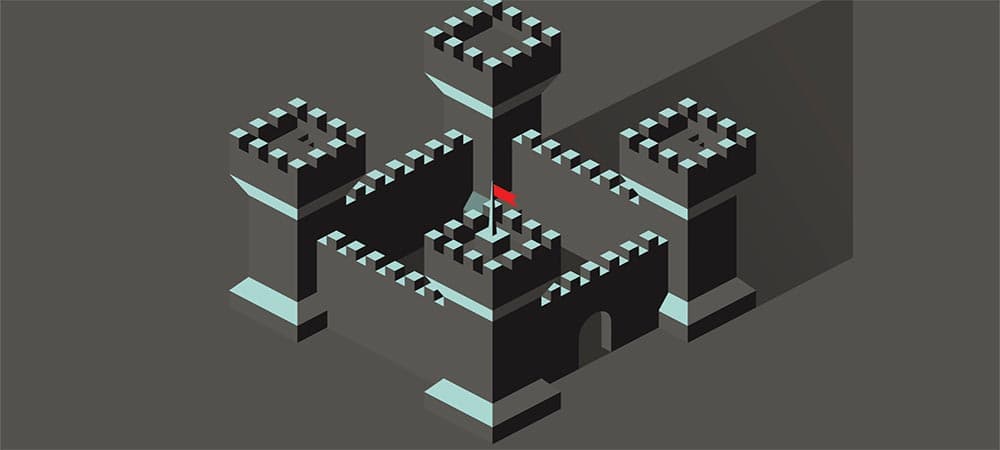Historical real-time strategy (RTS) game
Age of Empires III was released over 13 years ago. And while fans are still clamoring for more news on the sequel,
Age of Empires IV, details have been leaking slowly about what might be coming in the upcoming RTS game. Here is what we know so far about
Age of Empires IV.
What is the Age of Empires series?
The Age of Empires (AoE) is a series of critically acclaimed and popular RTS video games that focus on a number of historical events. The games were originally developed by Ensemble Studios and published by Xbox Game Studios.
The first title of the series Age of Empires was also Ensemble Studios’ first major release and one of the first history-based RTS games made. Comprising several titles and spin-offs, the series also been commercially successful with sales of more than 20 million copies.
What is Age of Empires IV?
In August 2017, publisher Microsoft Studios announced that Age of Empires IV would be developed by Relic Entertainment, the team behind Company of Heroes - the popular RTS game set during World War II.
The fourth new game in the series will be the first in the series that Relic Entertainment, rather than Ensemble Studios, is developing. Relic says it can’t wait to fuse historical context with deep strategic gameplay, and to bring this franchise back to the forefront of gaming and into the hands of its beloved community [1].
Age of Empires IV trailer
To date, there has only been one trailer released to announce the game. It features concept art and several battle scenes across historical periods between groups that include Roman legionaries, Spanish conquistadors, Native Americans, British Redcoats, feudal Japanese Samurai, and South American indigenous peoples.
While this seems to follow the timeline as well as nations and civilizations that were introduced in the first three games in the series, it’s not clear if this is a hint that these same civilizations will feature in Age of Empires IV. It could just be a round-up of previous games to serve as an enticing overview.
Age of Empires IV gameplay
The trailer didn’t reveal anything about the gameplay. Although it wouldn’t be surprising if Age of Empires IV does not veer too much from the much-loved and critically praised previous installments of the series.
The earlier games each focused on an exclusive period of history, with specific campaigns, and this game will likely do the same. Or it could provide a sweeping expanse of multiple epochs with a cross-pollination of campaigns. The gameplay will very likely have at least some changes related to features such as new units, resources, and tech trees as well as improvements to mechanics and UI.
When is the release date for Age of Empires IV?
Unfortunately, no release date has been announced officially (or unofficially for that matter) for Age of Empires IV. After Microsoft’s announcement at Gamescom in 2017, there was no other information about release dates, not even during E3 2018 or E3 2019.
Recently, however, Microsoft's executive VP of gaming Phil Spencer spoke to PC Gamer and confirmed that work on Age of Empires IV was moving along and that they’re “learning a lot revisiting Age of Empires and Age of Empires II,” receiving good insights from the series communities and larger player bases [2]: "We'll talk about it more this year [2019]…we're making good progress with it.”
There may be more revealed at the upcoming Gamescom conference near the end of August 2019. We might actually have an official release date by then, or at least some good tidbits of information about the game itself.
What is the history of the Age of Empires series?
Original co-founders Tony Goodman and John Boog-Scott formed Ensemble Studios back in 1995, soon after which others such as Rick Goodman, Brian Sullivan, and designer Bruce Shelley joined.
Tony Goodman, who played Dungeons & Dragons in junior high school, had, in particular, remembered the talents of Bruce Shelley - the co-designer of Sid Meier’s Civilization, which pioneered the 4X (eXplore, eXpand, eXploit, and eXterminate) genre of strategy-based video games - and tapped him for his expertise. Goodman’s idea was to populate the nascent company with true gamers to see if they could build the greatest game the world had ever seen [3].
Merging RTS gameplay with history
While the RTS genre was growing, the team noted that there really wasn’t anything specifically historically based at the time. They wanted a game that played in the way that actual people played actual board games, with unique features such as randomly generated maps and a non-cheating artificial intelligence (AI) that would play by the same rules as its human opponents.
Games such as Command & Conquer and World of Warcraft, the granddaddy of the massively multiplayer online role-playing game (MMORPG) world, inspired their focus and direction. What those games were not doing well would be the opportunity and sweet spot for Ensemble.
Age of Empires was thus borne from the idea of merging RTS gameplay with the historical and economic aspects of games such as Sid Meier’s Civilization.
What is the AOE series all about?
Age of Empires
Age of Empires, the first title in the series, was released in 1997. It revolves around events in Europe and Asia that range from the Stone Age to the Iron Age - or from ancient history to classical antiquity - a period that lasted nearly 3.5 million years and ended between the 8th century BCE and the 6th century AD.
In Age of Empires, you play as a leader of an ancient civilization, developing and advancing it along with a number of hunter-gatherers through four ages that include the Stone, Tool, Bronze, and Iron Ages. There are 12 civilizations based on prominent nations of the ancient world; the 12 are divided into four groups (Greek, Mesopotamian, Egyptian, and Asian) and include Assyrians, Babylonians, Persians, Phoenicians, Sumerians, and more.
Gathering resources to advance
To win, and secure an expansive Iron Age empire, you’ll need to gather resources to pay for new units, buildings, and more advanced technology. The main types of units are civilian, military, and animal, including:
- Villagers - collect resources, forage, farm, cut down trees for wood, construct buildings, mine for stone and gold, fish, and hunt
- Infantry - swordsmen, bowmen, axemen, and hoplites, using melee, short-range combat to attack
- Mounted - chariots, cavalry, war elephants, and archers (or on foot)
- Priests - non-combat and healing capabilities
- Siege - catapults and ballista
- Nautical - fishing boats and transport ships
Advancing between the four ages occurs at the Town Center - one of the most important buildings in the game - where villagers are created and several units are supported. Your ability to build multiple Town Centers is unlocked by constructing a Government Center during the third age (Bronze) of the game.
Each advancement equips you with new technologies, weapons, and units. And each civilization has its own unique technology tree that shows available buildings, units, and technologies for that specific civilization. Certain technologies, for instance, might be found in one civilization but not another (just as in real life).
Technology, in particular, plays a very important role in the strategy within Age of Empires. As a civilization progresses through the ages, technology becomes progressively more expensive. Accordingly, collecting necessary resources to obtain them also becomes increasingly complex.
Technological advances include things like faster resource-gathering (economic), enhanced armor (military), and stronger buildings (infrastructure).
In 1998, an expansion pack entitled Age of Empires: The Rise of Rome added the Roman Empire in addition to three other playable civilizations including Palmyrans, Macedonians, and Carthaginians.
Age of Empires II: The Age of Kings
The next title in the Age of Empires series, Age of Empires II: The Age of Kings, was released in 1999 and is set in the Middle Ages - from the Dark Ages to the Imperial Age - which lasted roughly 1,000 years from the 5th century to the 15th century.
It features 13 playable civilizations from Europe, Asia, and the Middle East including the Celts, Goths, Vikings, Persians, and others.
Five historically-based campaigns available include Genghis Khan's invasion of Eurasia, William Wallace fighting for the Scots, and Joan of Arc’s battles for the French. Like in its predecessor, players in Age of Empires II gather resources to construct towns, build armies, and vanquish foes.
Expansion pack with strengthened AI
The expansion pack to Age of Empires II: The Age of Kings was released in 2001. This title, Age of Empires II: The Conquerors, adds scenarios and new campaigns covering the Spanish conquest of Mexico, Attila the Hun, and the Battle of Agincourt as well as five new civilizations that include the Aztec and Maya.
It features 26 new technologies, 11 new units, new gameplay modes, and new maps. Perhaps the biggest update was the addition of enhanced scripted artificial intelligence (AI) of villagers and siege weapons.
Villagers now start gathering resources automatically when they build resource-gathering structures and sites, spread out evenly instead of tilling the same patch. And siege weapons do not engage in “friendly fire” if the attack is likely to damage allies. Subsequent versions of games in the Age of Empire series use this smart AI upgrade.
Spinning off the original game
In 2002, a spin-off game, Age of Mythology, is set in the same period as the original Age of Empires, but focuses on mythological elements and legends of Greek, Egyptian, and Norse culture rather than historical events. Although it shares many gameplay elements of its progenitor, it features one campaign only.
It tells the story of Arkantos, an admiral of Atlantis who is sent on a quest to regain favor from Poseidon, god of the Atlanteans. On his journey, he travels through all three realms - Greece, Egypt, and Norse lands - where he’ll meet among others Ajax, Agamemnon, and fellow consummate traveler Odysseus at the Trojan War.
This spin-off then spun off another expansion, The Titans, in 2003. Arkantos’s son Kastor leads fellow Atlantean survivors on a quest to free the Titans, a newly introduced mythological race, from the nefarious abyss of Tartarus.
Age of Empires III
The third title, Age of Empires III, released in 2005. Taking place when Age of Empires II: The Age of Kings ended, it encompasses the discovery of the New World and European colonization of America: a time period of 380-plus years between approximately 1492 to 1876. This title features eight civilizations to play, including British, French, Spanish, Portuguese, Dutch, German, Russian, and Ottoman.
While there are 12 different tribes of Native Americans, they’re not playable - although you can form an alliance with them by building trading posts at their camps.
Coming home
One of Age of Empires III’s most significant innovations is the addition of the “Home City.” This unique feature sends you free units, resources, and upgrades regularly throughout the game. Functioning as a powerful second city that’s separate from the game, it’s comprised of five main buildings from which you can choose your “cards” (or bonuses) and customizations.
The Home City can’t be attacked or destroyed, and it moves with you between games. In this way, this feature has been compared to a role-playing character itself. You can also name it whatever you’d like.
New cutting-edge graphics effects
Another important feature that this game proffers is an updated graphics engine based on the first physics engine to be used in an RTS game. The engine enables new (at the time) high-end graphical features such as the bloom effect in high-dynamic-range lighting, which allows much more natural-looking scenes involving sunshine and heat.
Bloom lighting reproduces the imaging effect of real-world cameras, providing the illusion of how intensely bright light seems to spill over beyond its natural borders when looking through a camera capturing the scene.
The new engine also enables events that behave more realistically rather than using pre-created animations. For instance, a tree could actually be knocked down if a stray cannonball hit it.
Age of Empires III expansions and Age of Empires Online
Age of Empires III had two expansions that quickly followed in 2006 and 2007, The WarChiefs and The Asian Dynasties, respectively. The first adds new content, including increasing the game’s number of Native American tribes from 12 to 16 as well as new gameplay features such as enabling the use of stealth to allow certain units to remain undetected by enemy units and buildings.
The second follows the rise of Asia during the same period of European growth as Age of Empires III and its first expansion. It also adds three new civilizations including Indian, Japanese, and Chinese, and six new native civilizations including, among others, the Shaolin, the Zen, and the Jesuits - in which monks replace explorers.
Adding a free-to-play installment and focusing on the Greek and Egyptian civilizations, Age of Empires Online was released in 2011. This new approach features a persistent online capital city that exists and grows even if you’re offline, as well as a level-based system that lets you play at your own pace [4].
Expansions and spin-offs from 2012 to 2016
Between 2012 and 2016, the series released a number of expansions and spin-offs including:
- 2013 Age of Empires II: HD Edition - features the original game and the expansion The Conquerors, as well as updated graphics for high-resolution displays
- 2013 Age of Empires II: The Forgotten
- 2014 Age of Mythology: Extended Edition
- 2014 Age of Empires: Castle Siege
- 2015 Age of Empires II: The African Kingdoms
- 2015 Age of Empires: World Domination
- 2016 Age of Mythology: Tale of the Dragon
- 2016 Age of Empires II: Rise of the Rajas
Age of Empires: Definitive Edition
A little more than 20 years after the original, a new internal studio named Forgotten Empires released Age of Empires: Definitive Edition in 2018, which is a remastered version of the original game. It features support for 4K resolutions, updated graphics, remastered sound and music, and a smoother user interface (UI) experience.
Both Age of Empires II: Definitive Edition and Age of Empires III: Definitive Edition are slated for release in late fall 2019 and 2020, respectively. They’ll be released on Steam in addition to the Xbox Game Pass for PC and the Microsoft Store.
Do I need to play them all in order?
It probably makes sense to play the original game of each spin-off, and playing the very first title from 1997 would give you an immediate feel for the game. But one of the wonderful things about the Age of Empires series is that you can jump in to any of them without needing to have played all of the major titles and the various spin-offs. Just choose the time period of history that you’re willing and able to explore, and game away.
About the Author: Jolene Dobbin is a contributing writer for HP® Tech Takes. Jolene is an East Coast-based writer with experience creating strategic messaging, marketing, and sales content for companies in the high-tech industry.







